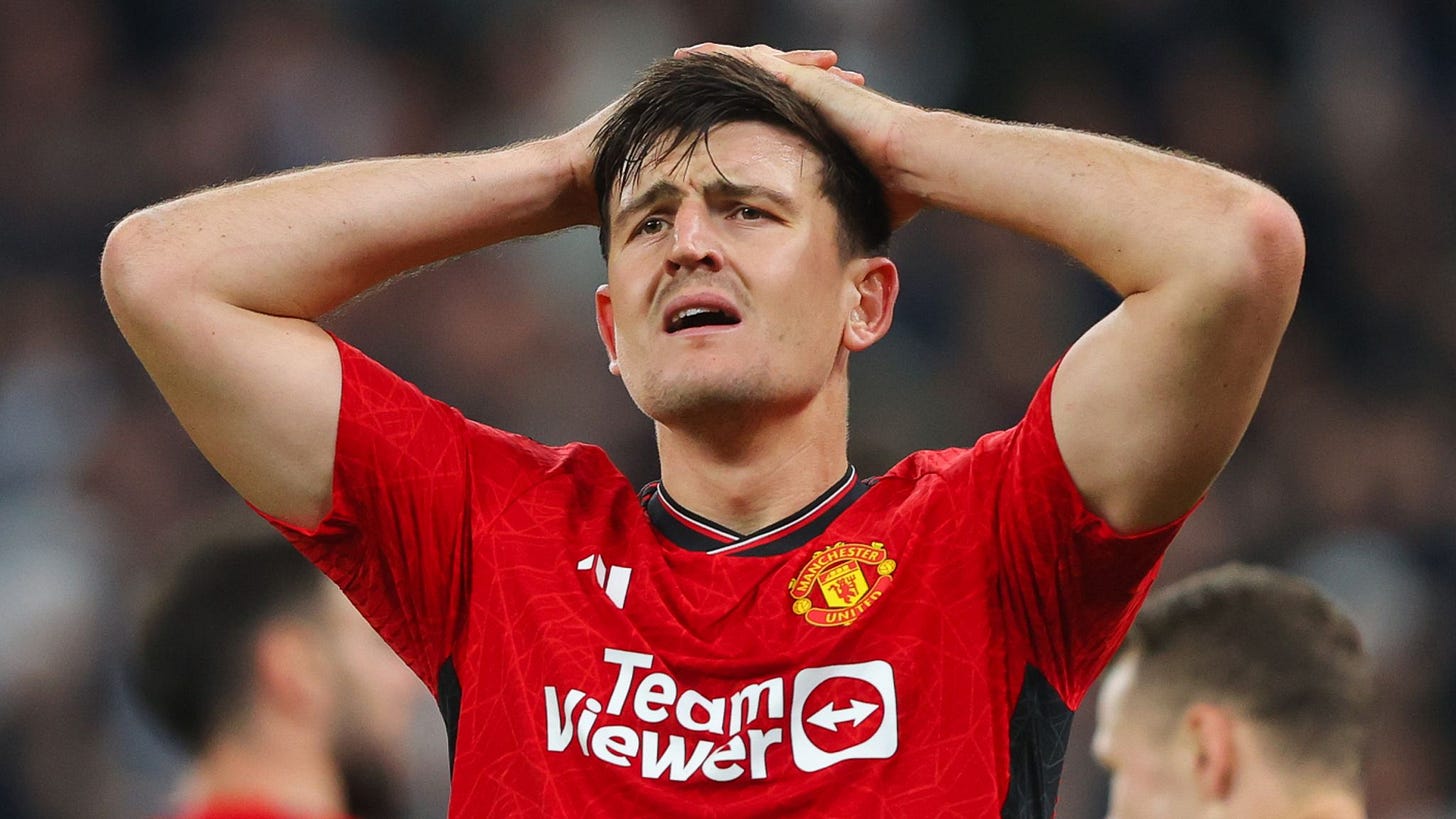The Harry Maguire Conundrum: Reflection on Media, Perception, and Human Impact
I read a brilliant article which you can read here by Dylan McBennett, which caused me to think about the noise that has surrounded Harry Maguire and I can't help but feel a mix of emotions. On one hand, I understand the intense scrutiny that comes with being a high-profile athlete, especially one with a record-breaking price tag. On the other, I'm troubled by the seemingly relentless criticism that has dogged Maguire throughout his Manchester United career.
The Media Narrative vs. Statistical Reality
The media narrative surrounding Maguire has been nothing short of perplexing. How did we arrive at a point where a player consistently selected for both club and country is portrayed as fundamentally incompetent? It's a question that gnaws at me, forcing me to examine my own biases and the way I (and all of us) consume football media.
I find myself wondering: have we, as a footballing community, been fair to Harry Maguire? The statistics paint a picture that's at odds with the prevailing narrative. Clean sheets, progressive passes, involvement in goals – these metrics suggest a defender who's far more capable than his harshest critics would have us believe. Yet, the memes and the mockery persist.
The Fine Line Between Criticism and Abuse
But here's where I struggle: even if we accept that Maguire has underperformed at times, does that justify the level of vitriol directed his way? At what point does criticism cross the line into abuse? And what toll does this constant negativity take on a human being, regardless of their profession or pay grade?
I'm reminded of Ian Wright's comments about the treatment of Maguire being "personal." It's a sobering thought. We often forget that behind the headlines and highlight reels, these are real people with real emotions. The pressure of playing for a club like Manchester United is immense on its own – add in the weight of being the world's most expensive defender and the target of relentless online ridicule, and it's a wonder Maguire has managed to maintain any semblance of composure.
Individual Performance in a Team Context
Yet, I also have to question: is it fair to completely absolve Maguire of responsibility? Professional athletes, especially those at the highest level, are expected to perform under pressure. Has Maguire always lived up to the expectations that come with his price tag and position? Probably not. But then again, how many players truly do?
The tactical debates around Maguire's abilities are fascinating. Can he play in a high line? The evidence suggests he can, and has done so successfully. But perception is a powerful thing, and once a narrative takes hold, it can be incredibly difficult to shake.
As I delve deeper into Maguire's tenure at Manchester United, I'm struck by the complexity of evaluating an individual's performance within a team sport. It's worth noting that during Olé Gunnar Solskjær's two full seasons as manager, with Maguire featuring heavily, United achieved back-to-back top-four finishes. This suggests that, at least for a time, Maguire was a key component in a relatively successful team.
The Impact of Club Turmoil on Player Perception
However, the last few years have seen United go through significant turmoil. Multiple managerial changes, inconsistent team performances, and a general sense of instability have plagued the club. In this context, it becomes increasingly challenging to isolate Maguire's individual contributions – both positive and negative.
I find myself questioning: how much of Maguire's perceived decline is truly on him, and how much is a reflection of the team's overall struggles? It's a delicate balance. While it would be unfair to absolve Maguire of all responsibility for his performances, it's equally misguided to heap all of the blame on his shoulders. Football is, after all, a team game. Errors in other parts of the pitch can create unfavorable situations for defenders, and a lack of cohesive team structure can expose individual weaknesses.
This nuance is often lost in the heat of post-match analysis and social media reactions. It's far easier to scapegoat a single player than to grapple with the complex interplay of factors that contribute to a team's performance.
Reflecting on Fan Culture and Media Responsibility
As I reflect on this situation, I'm left with more questions than answers. How do we strike a balance between fair criticism and empathy? How much responsibility lies with the media, and how much with us, the consumers? Are we too quick to jump on bandwagons of opinion without critically examining the evidence?
One thing I'm certain of is that the Harry Maguire saga says as much about us – the fans, the media, the football culture – as it does about the player himself. It's a mirror held up to our own tendencies towards snap judgments and pile-ons. As for Harry Maguire, only time will tell how his career will ultimately be judged.

